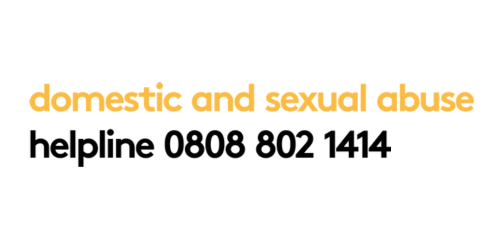What is a healthy relationship?
A healthy relationship is one where you’re free to be who you are. One where you’re able to see and speak to who you like, dress how you want, eat and drink whatever you like, all without having to get permission from someone else or fearing the consequences of doing as you wish. Being in a healthy relationship should be a positive experience for you and the other person, whether they’re a romantic partner, family member or friend. In a healthy relationship you should feel safe, secure and respected.
What is an unhealthy relationship?
An unhealthy relationship can look different to different people, as we all have different wants, needs and boundaries. However, there are some typical red flags which might indicate that your relationship is unhealthy.
For example, if you’re involved with someone romantically and they expect you to spend all your free time with them instead of having enough time to be alone and with others such as friends and family members, this would be unhealthy.
Another red flag of an unhealthy relationship is if the other person’s behaviour or comments make you feel unhappy or bad about yourself. Maybe they make you feel unsafe by the things they do or say – either to you or about you to others.
Similarly, pressuring you into doing things you don’t want to do or don’t feel ready for is a sign of an unhealthy relationship. This could mean that they aren’t respecting your boundaries, which is not good. Boundaries are necessary for setting standards for how you like to be treated. They help to outline your likes and dislikes; establish consent by requiring permission and respect for your values, your feelings and for any differing opinions you may have.
How do I know if my relationship is healthy or unhealthy?
As we mentioned above, every relationship is different. One thing to remember is that no relationship – romantic or otherwise – is perfect. Of course there’s going to be the odd argument or disagreement, but it’s important that these things are occasional and not happening too often.
In a healthy relationship, you’ll both respect each other’s boundaries and respect the fact that you’re not the same person, so you will disagree on some things! In an unhealthy relationship, there may be a lack of respect for boundaries. Another sign to look out for is if the other person brings up past issues to hold them against you, make you feel guilty and possibly pressure you into acting in a certain way.
In a healthy relationship, with proper communication you can work through issues together and come out stronger on the other side. Communication is integral to a healthy relationship. It isn’t just about what we say, it’s about the tone we use and even our body language as we communicate.
An listening is equally as important as talking too! It is essential that you both practice ‘active listening’ – this means not only listening to the words the other person is saying, but also to the message they’re trying to convey. It is important to know that the other person has paid attention and understood when you express yourself to them, as this shows you that they’re respectful of your thoughts, feelings and opinions.
What can I do if I think I’m in an unhealthy relationship?
If you think your relationship is unhealthy, the first thing to do is take some time to sit back and reflect. Ask yourself:
- Do I feel respected?
- Am I being listened to?
- Am I made to feel worthy?
- Does the other person care for and support me?
- Do I feel that my opinions are valid?
- Do I have the freedom to see your friends and family without my partner checking up on you?
- Can I freely send messages to people without my partner feeling the need to read them?
Remember – these are your rights, and no-one has the right to take them away from you.
If you answered ‘no’ to any of the above, your relationship may be unhealthy. If you need support or are still not sure, you can talk to us anytime, any day on 0808 802 1414, at help@dsahelpline.org or via our Live Chat here on our website.
